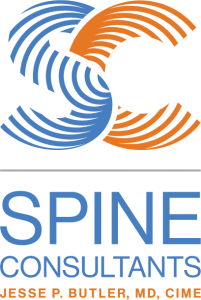Herniated disks can be painful for anyone who has experienced them. However, some people have no pain at all, especially if they do not have nerve compression. The symptoms usually fade or disappear after a couple of weeks. If they persist or worsen, surgery may be necessary.
What is a Herniated Disc?
The spine is composed of a set of bones called vertebrae that extend from the base of the head to the tailbone. There are spherical cushions that sit between your vertebrae called discs. They have a soft, gel-like center and a harder outer layer.
Your discs act as shock absorbers between your bones, allowing you to bend and move freely. Whenever one of these discs tears or leaks, it is called a herniated disc. If the fluid (the nucleus pulpous) pushes through the crack, it can put pressure on surrounding spinal nerves, causing you pain.
How Can You Develop a Herniated Disc?
Any age can be affected by herniated disks, but they are most common in men between the ages of 20 and 50. There are several factors that can lead to a herniated disc including:
- Weight: Being overweight contributes to back pain.
- Genetic factors: A family history of herniated disc conditions can contribute to the development of a herniated disc.
- Physically demanding jobs: People with physically demanding jobs that require pushing, pulling, or twisting are more likely to suffer from herniated disks. Any repetitive action that puts a strain on the spine can cause the condition.
- Improper lifting technique: The best way to lift large objects is to use your legs instead of your back. Poor technique can lead to a herniated disk.
- Frequent driving: Sitting for long periods of time and the vibrations of the car could harm the disks.
- Sedentary lifestyle: Due to inactivity, a sedentary lifestyle may result in a herniated disk.
- Smoking: Smoking may prevent oxygen from reaching the disks, resulting in tissue degradation.
Symptoms of a Herniated Disc
There are different symptoms of a herniated disc depending on the location of the problem. Movement aggravates the symptoms, and rest improves them.
Back disk herniation
A herniated disk in the lower back is often responsible for sciatic nerve pain. There is usually a lot of discomfort on one side of your buttock, in your leg, and even in your foot due to this condition. You can also experience the following symptoms with a herniated disc in your lower back:
- Pain in the back
- Feeling tingly or numb in your legs or feet
- Weakness in the muscles
Herniated disk in the neck
A herniated disk in your neck can cause the following symptoms:
- Shoulder blade pain
- Shooting pain in your shoulder, arm, or hand and fingers
- Neck pain, particularly in the back or on the sides
- Back or neck pain exacerbated by bending or turning
- Tingling sensation or numbness in your arms
Diagnosing a Herniated Disc
The doctor will perform a complete physical exam to check muscle strength, pain, and sensitivity. In addition, they may request MRIs, X-rays, and CT scans to examine your spine.
Your doctor can also order a myelogram, which is a CT scan with dye injected into your spine under X-ray guidance. The dye can reveal a narrowed spinal canal (spinal stenosis) and the location of herniated disks.
An electromyogram evaluates the function of the nerves in your muscles. It determines which nerve is being affected by a herniated disc.
What are the Treatment Options for Herniated Discs?
In most cases, a herniated disc does not require surgery. They are usually treated with a combination of these methods:
- Muscle relaxants and steroid injections to reduce inflammation
- A spinal injection to reduce inflammation and swelling caused by a herniated disk
- Physical therapy to reduce stiffness and pressure on the nerves in the spine
- Hot or cold packs
- Chiropractic or massage treatment
Surgical Options for a Herniated Disc
When other treatments fail to help people with herniated discs, a patient may need surgery. For some, surgery would be the best first step. Surgical methods can relieve pressure on the spinal cord and nerves. Only a qualified spinal surgeon can determine if you are a good candidate for spinal surgery
Reduce Your Risk of a Herniated Disc
Using proper lifting techniques and maintaining a healthy weight can help you reduce your risk of a herniated disk. Regular exercise and good posture can help to improve your back and abdomen. Nevertheless, if you suspect that you are suffering from a herniated disc or the pain in your lower back is persistent, speak to your healthcare provider about your treatment options.

